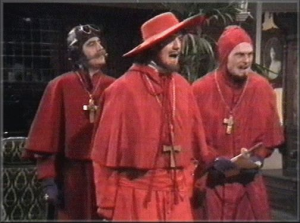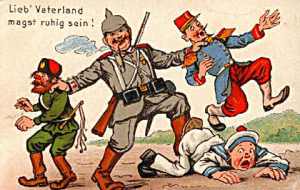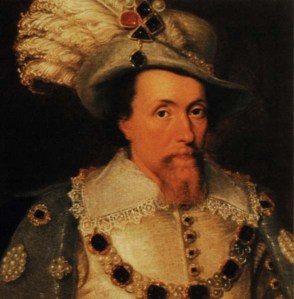As covered in a previous post, the closing of the Napoleonic War was somewhat confused, due to Napoleon’s escape and subsequent 100 days at large (that is technically near ¼ to 1/3 of a year, depending on how you look at it) and climatic last stand at Waterloo. That said, some things did happen during the Napoleonic War that drastically altered the shape of Europe and the world for the next 100 years, before the First World War changed everything again.
1. The Spanish Empire Catches its Mortal Wind
Napoleon’s conquest of Spain was the final blow to Spain’s quest for supremacy. The destruction of the Spanish army and the Spanish navy, mixed with the complete displacement of the Spanish government, and the necessity for Spain to quickly recreate its government gave enough space for Spain’s colonies to break off entirely. Mexico, Colombia, Argentina, Guatemala, Honduras, Chile, all these countries gained their independence from Spain as a result of Spain’s downfall during the Napoleonic War. Florida went from Spanish control to the US as well. The rapid collapse of the Spanish Empire at this time is one of the main reasons for the instability in the realms formerly claimed by Spain. Spain didn’t withdraw gradually, literally it was a case of one day Spain was there, one day she wasn’t.
2. The Holy Roman Empire is no more
This isn’t the same Roman Empire that started in Rome in 509 BCE. Rather, this is a weird political machination that really was never meant to be. This is a weird extension of Charlemange’s Empire, proclaimed by the Catholic Church (that Holy Rome) that by the 1500’s wasn’t so much an empire as it was a fragile alliance system between Prussia in the North and Austria in the south. When Napoleon created the ‘Confederacy of the Rhine’, Francis II abdicated the throne of Emperor. This kicked started a long series of Pan-Nationalist movements in the German States to create a unified Germany.
3. Germany Starts to Become Germany
Again, before the Napoleonic War there was no such thing as Germany, at least in the way we think of Germany in the modern day. Before the Napoleonic War modern day Germany was actually a collection of smaller kingdoms. Prussia was by and far the largest and most powerful German Kingdom at this time, but also present were Saxony, Hesse, Bavaria, Mecklenburg, Brunswick, Saxe, and others. Prussia and Austria very quickly form an alliance, The German Confederation. The Confederation won’t last very long, and is mostly a fight between Prussia and Austria over who has more power, and who has more sway over the smaller kingdoms. When we here at Hashtag History begin the Germany/Austria section of the site, we’ll go more into depth about the rise and fall of the German Confederation. One of the things that kills it? The Rise of Ethnic Nationalism.
4. Ethnic Nationalism Begins to Rise
Okay, so, quickly, quickly, what makes a country a country? At a loss for words? Struggling to create a precise definition? That’s okay. That question is what set off the Enlightenment Era, and all subsequent wars in the first place. It’s actually a terribly difficult and abstract question to think about, which is strange, considering that we all live inside countries, and deal with them on a near daily basis. (And when you start studying geopolitics, things get even more confusing). Regardless, at the end of the day a nation is a group of people. What is this group? How do we define this group? Well, before the Enlightenment Era, it was usually a combination of geography and who your monarch was. (Note for this, Britain is an exception, as Britain’s political history is quite a bit different in several regards. Seeing as this is the British section, we will return to Britain’s unique case soon enough).
Before the Enlightenment, the people of France, for example, had nothing linking them together. Their cultures were different from north to south, their languages were different, their products were different. The only thing linking them? They were all ruled by the same monarch. This is why Louis XIV wouldn’t have been wrong saying ‘I am the State’. Literally, he was the French government, and he was the only thing defining just what the hell a France was.
The Enlightenment changed this. The revolution changed this. France was the people of France, that is, France was the French. Who are the French? Well, back then it was those people of Frankish (Gaul) ancestry.
In the area we now call Germany? We see the rise of Pan-German nationalism. The thought being, ‘we’re all Germans, why not be Germany’? What’s a German you ask? Well, again, someone ethnically German. It wasn’t about monarchs anymore, but it wasn’t altruistic yet. Now it was about ethnicities, and increasingly we would see every ethnic group ask for its own ethnic state, and eventually we’d see some ethnic groups trying to ‘purify’ or ‘cleanse’ other ethnic groups. Yes, we already see the justification for genocide starting to come up. This’ll intensify by the 1850’s.
5. Britain becomes THE super power
I should hope that at least ONE previous entry of mine put into your head that idea that the 18th century was something of duel between two Super Powers trying to spread their influence across the globe. Those two powers were Britain and France. (And to a lesser extent, the Netherlands). For all practical, intensive purposes, France will never be the same after the Napoleonic War. Right after the war, poor old France is exhausted, having been invaded on all sides by her foes, and in no state to compete with Britain. What is more, the French Revolution (as it was 1789-1800) wasn’t the last revolution that France would go through. 1830 and 1848 would see two more revolutions. One replaced the Bourbon monarch with the House of Orleans, and shifted slightly the system of constitutional monarchy that had been sit up in the after math of the Napoleonic War, and the second one, 1848, ended the French Monarchy for once and for all, and established the ‘Second French Republic’. When we open the ‘France’ section of Hashtag History, we’ll return to this. But suffice it to say, France’ll never return to her 18th century stride. She’ll maintain rank as a Great Power, but never to be the top ever again. (To date, that is, never say never, I suppose).
The United States hasn’t really industrialised outside of the East Coast, and Germany goes through a rough series of unification wars, Russia is mostly backwater outside of the Moscow, St Petersburg areas, and so Britain becomes the undisputed global champ for the next 100 years. It would take the emergence of the United States as a super power following the First World War to finally bring a real challenger to Britain.
Needless to say, this changes the way that Britain pursues foreign policy for the duration of the 19th and first half of the 20th century.
6. Britain Picks Up New Colonies
Ceylon (modern Sri Lanka), South Africa, and Tobago all become British colonies, taken mostly from the Netherlands and won by Britain, both as conquests and as a part of war reparations. Britain also becomes the undisputed champion of India, which is actually kind of lucky for India, as it gets to avoid the mess that would consume Africa later when all the European Powers decide to divide it up. (The division of Africa is called, ‘The Scramble for Africa’, and that happens later, yes there will be an entry on this).
7. The Very Seeds of the Modern World Are Planted
Absolute Monarchs are on their way out. And the monarchs know that now. Factories, technologies, and free trade are on their way in, and everyone knows that now. The last effects of the Middle Ages have whispered through the land, and from here on out it’ll be less a battle of kings and families over land and money, and more a battle of political ideas. Think about it. The Napoleonic War, this was a battle of Napoleon’s unique ‘modern’ ‘enlightened’ dictatorship, ‘Bonapartism’ versus the conservatism and the monarchies of the Europe, and most strikingly a battle of the French Revolution and the unique Napoleonic state-controlled uber-patriotic economic and political ‘all power to the state’, ‘all duty to the state’ system versus British capitalism, British constitutionalism, British individual liberties and rights, and the general British political system. Napoleon wanted a world dominated and dictated by Paris, and Britain favoured a world that only Britain, with her own strange, patch-work history could favour in that instance, one where London was important, yes, one where London was the centre for global trade, yes, but hardly one where London ruled all.
So, wait, since this is the British section of Hashtag History, we will bring it back to the British? And you’re telling me the British are against centralisation?
Yes.
You see, outside of the weird chapter that is the latter 19th century and early 20th, British political and economic philosophy tends to be against centralisation. And honestly, even as the 19th century proceeds, and as the Empire gets more and more centralised on London, we’ll see increasingly how that sudden centralisation doesn’t really fit the British spirit, system, or mentality.
The British and the Americans mock each other constantly. The British refer to the Americans as their ‘strange cousin’ or their ‘strange child’. The Americans refer to Britain as their ‘cultural forefathers’ or as their ‘strange cousin’. One trait that British political philosophy passed on to their American cousins was the cultural distaste for a centralised authority.
Think the British don’t like a centralised authority? Well, take a quick peek at the 17th century! Three Civil Wars in a row just because the King got too powerful, and then another because Cromwell got to powerful! The only resolve to those Civil Wars? Make sure the Parliament and the King both spread out their power equally.
Think the British don’t like centralised authority? Look at the bickering between North England, South England, North Wales, South Wales, South Scotland, North Scotland, and Northern Ireland over how much power each of these regions should have! This bickering isn’t new! It dates back to 1603 when the British crowns unified under James VI and I! (He was known as James VI in his native Scotland and James I in England, and so when he became the first king of a unified Britain he was simply called James VI and I. In many ways, the British are practical to a fault).
But that’s the nature of British (and its strange child, American) democracy. It’s a damned bloody mess. But it’s a beautiful mess, and its one that the country always survives. I love the United Kingdom, and I also have great admiration for the United States, not because of what it is presently but because of what it can be. Something both nations have going for them? They’re democracies, and the very nature of democracies are their flexible, adaptable natures.
So how does Britain adapt into the rest of the 19th century? How does Britain adapt into being the sole superpower left standing after a very messy 18th century? And how does the on-going British conversation about what exactly a British mode of government is impact her sometimes erratic policies over the course of the rest of the 19th century? (We’re only at 1815, here kids, we still have 85 years left in this century)? And does Britain invent the modern world, in both good and bad ways? (Yes).
Tune in for more Hashtag History!





Pingback: Hashtag History: The Beginning of the Wars of Pax Britannia: The British Armed Forces of the 1820’s | Taylor Rockhill